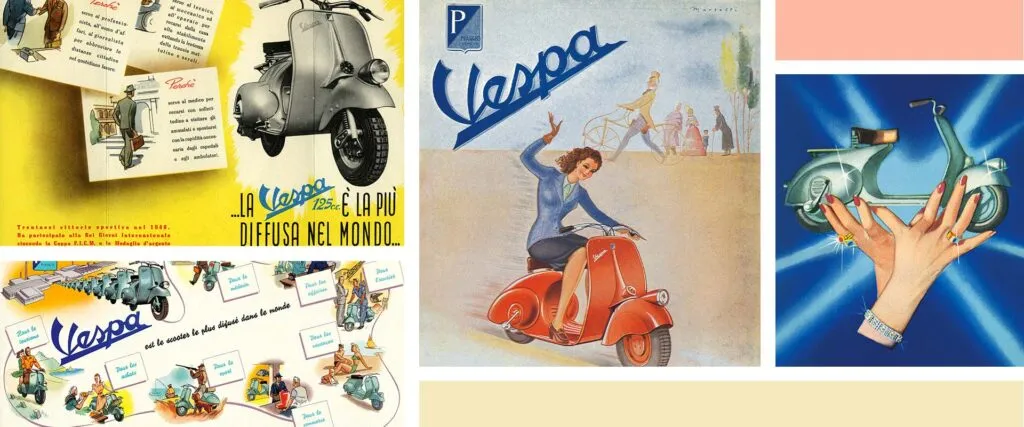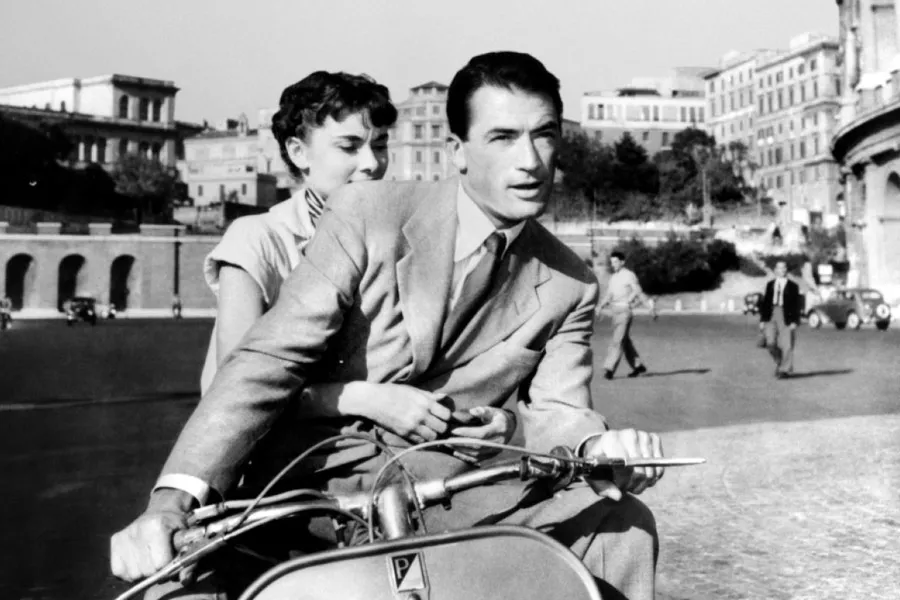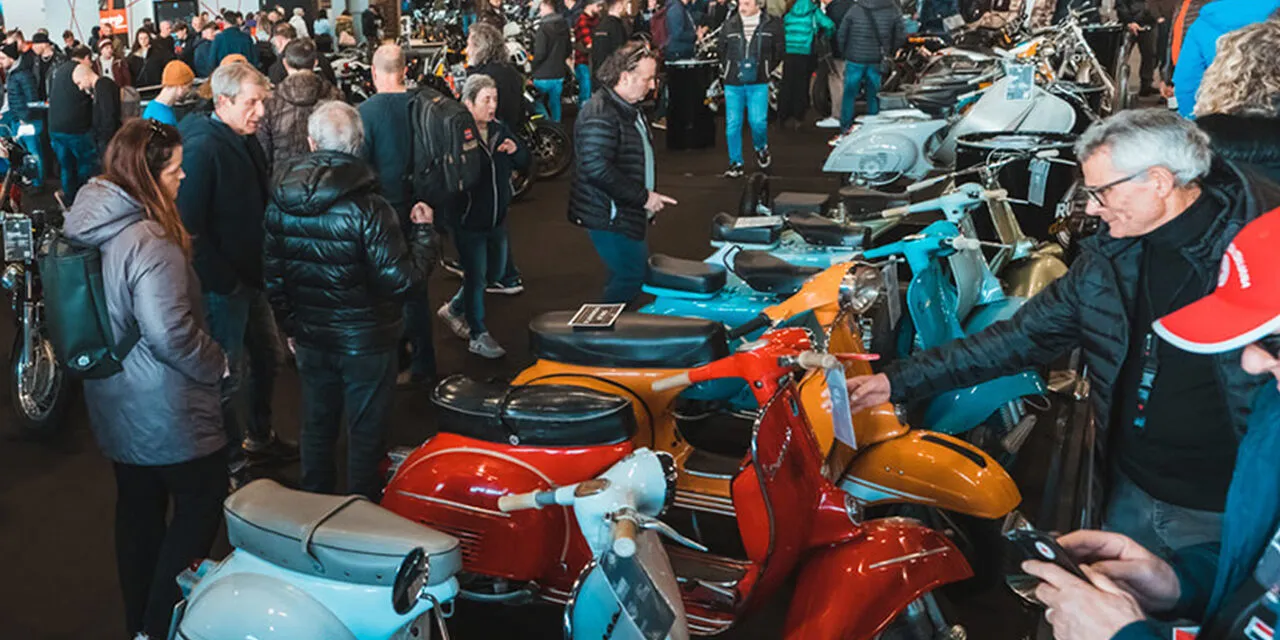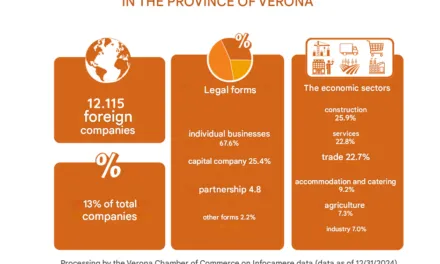It is an icon of the Italian way of life. Anthem to the Dolce Vita and a symbol of the Vacanze Romane. Since its birth in 1946, it has triumphed over all generations and continues to this day to be a myth of Made in Italy. On Saturday, January 20, during Motor Bike Expo 2024, the legendary Vespa will take over Verona. Thousands of members of Vespa Club Italia will conquer the city’s streets before gathering at the expo to show off their models.
So the Italian-made motorbike of excellence could not be forgotten at the motorcycle-focused expo, which is set for January 19–21. In fact, VeronaFiere will have an exhibition space dedicated to Vespa models—some of the most amazing vehicles ever created by Piaggio. That’s not all, though. Guests will experience an 80s-themed atmosphere where they may learn about the fashion, music, clothing, and culture of that decade. On the other hand, the Italian Club members will receive a number of advantages, such as free parking inside the event and lower admission costs (16 euros as opposed to 24).

An Italian Cultural Heritage
During the Motor Bike Expo 2024, the Italian Club will also pursue the “Vespa Patrimonio Culturale Italiano” initiative, which aims to recognize the Piaggio scooter as a cultural, historical, and artistic expression of our country. For this reason, the club has also called for an online signature collection at https://www.vespapatrimonioculturale.it/.
More than a motorcycle. The Vespa tells the story of Italy’s evolution.
With its unique marketing style that is resistant to social changes, the Vespa has captured the hearts and minds of entire generations by adapting to the changing needs and feelings of the people.

In 1946, Italy needed some lightheartedness after World War II; therefore, a motorbike arrived, allowing people to ride around town without worrying about anything. After a few years, as the economy started to improve, people’s need to get away from their daily lives increased. And once again, the Vespa answered perfectly; just consider the popularity of the movie in which Gregory Peck and Audery Hepburn raced through the streets of Rome.


Eventually, the Vespa evolved into a vehicle for revolutionary ideals. Starting with a message advocating for women’s emancipation, it continued also the 1970s, when the native Paggio star evolved into a symbol of youth seeking for f freedom, dreams, and peace. After a natural period of rise and stabilization, the Vespa suddenly arrived in the new century and, once more, became a narrator of Italian reality, mostly due to the introduction of the electric model, which became a symbol of people’s wanting for sustainable living.














